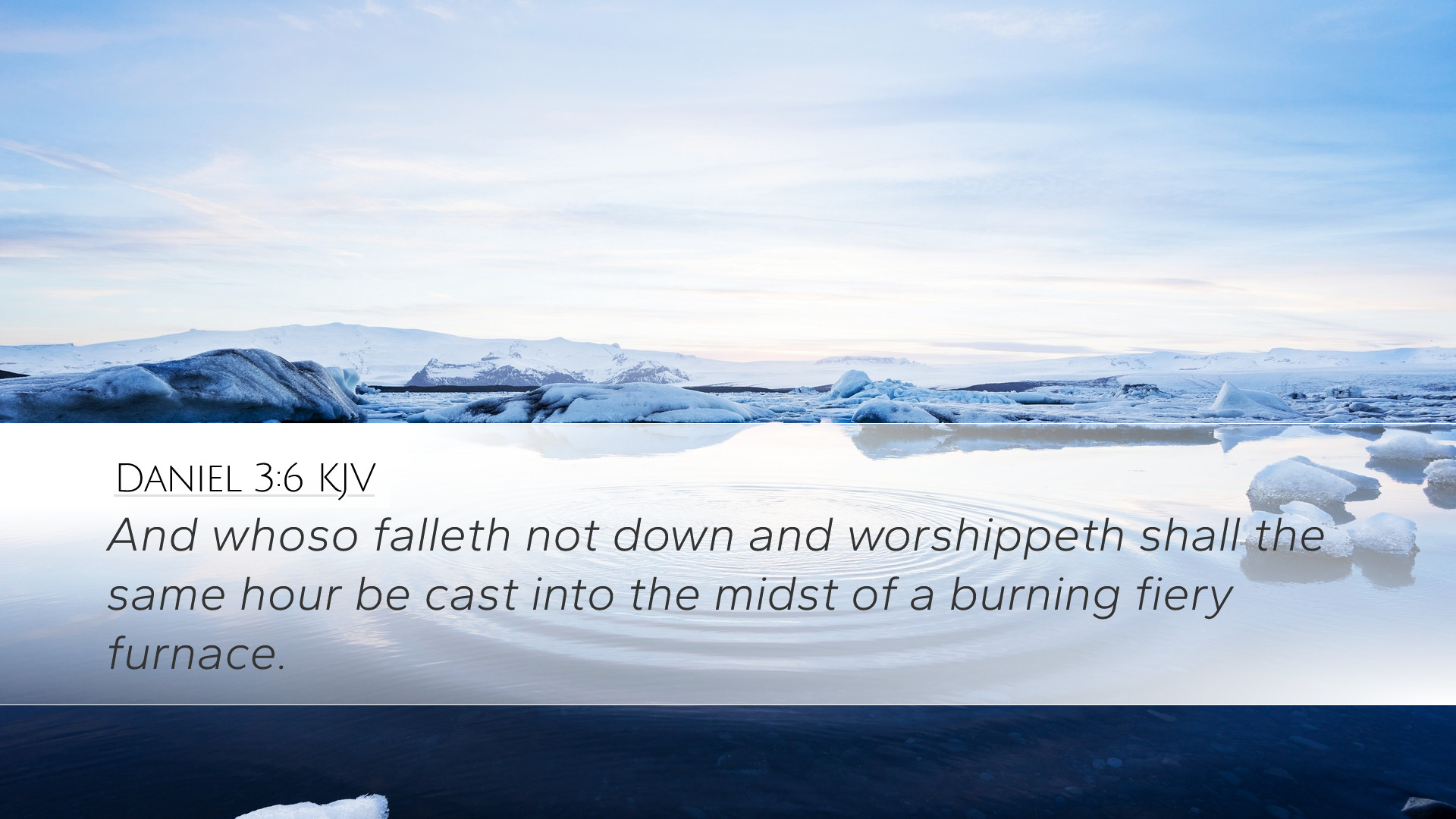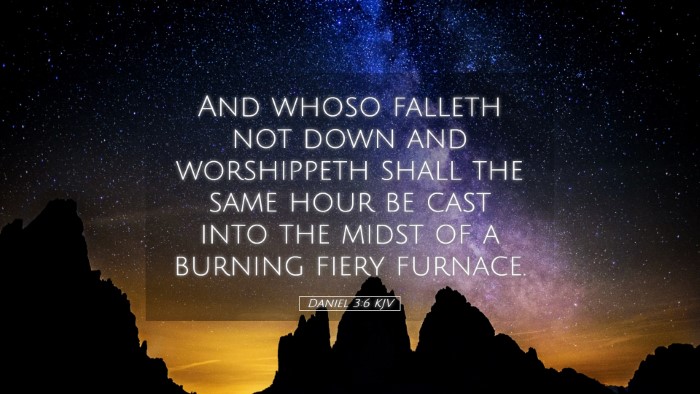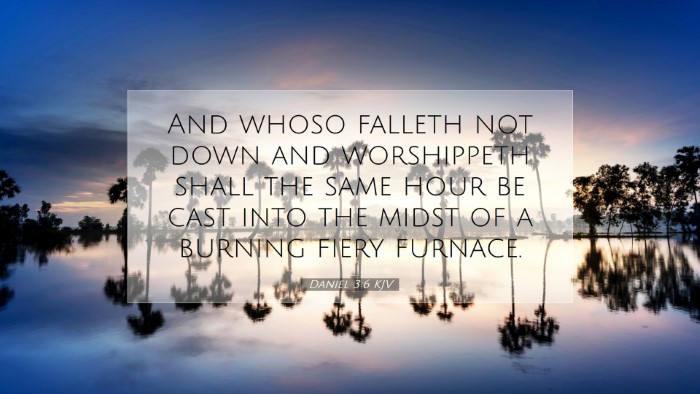Commentary on Daniel 3:6
Daniel 3:6 states, "And whosoever falleth not down and worshippeth shall the same hour be cast into the midst of a burning fiery furnace." This verse presents a critical moment in the narrative of Shadrach, Meshach, and Abednego, which provides rich theological, historical, and moral insights. Below we explore various commentarian perspectives on this passage.
Historical Context
The edict in Daniel 3:6 is issued by King Nebuchadnezzar against the backdrop of Babylonian religious practices where idol worship was rampant. The king had erected a golden statue and mandated that all subjects prostrate themselves before it. This decree was not merely a test of loyalty but a challenge to the allegiance of the faithful to Yahweh.
Theological Implications
This verse highlights important theological themes such as:
- Authority and Idolatry: The command from Nebuchadnezzar emphasizes the tension between earthly authority and divine commandments. The refusal of Shadrach, Meshach, and Abednego to bow serves as a manifestation of their loyalty to God.
- Faith Under Pressure: The verse sets the stage for understanding faith when faced with life-threatening consequences. It calls into question the cost of discipleship and the resolve of believers in confronting external pressures.
- Divine Deliverance: While the immediate threat is severe, the verse presages the eventual miraculous deliverance of these faithful men, encouraging the faithful to stand firm in trials.
Commentatorial Insights
Matthew Henry
Matthew Henry remarks that this command reflects not just a law of Nebuchadnezzar but a test of allegiance. He emphasizes the gravity of the situation, where the stakes were life and death. This decree serves as a foreshadowing of how those who choose to stand for their beliefs may face persecution. Henry reinforces the notion that true faith often necessitates standing against the majority in times of trial.
Albert Barnes
Albert Barnes explains that the punishment threatened was designed to terrorize the populace into compliance. He notes that the “burning fiery furnace” symbolizes the ultimate judgment that idolatry brings upon the faithful. Furthermore, Barnes highlights the importance of this moment as it displays both the unwavering resolve of the young Hebrew men and the intensity of societal pressure to conform. He encourages readers to recognize that, even in dire circumstances, God’s power is manifest, and faith will lead to ultimate vindication.
Adam Clarke
Adam Clarke provides a detailed exposition on the phrase "whosoever falleth not down and worshippeth." He emphasizes the complete and utter submission required by Nebuchadnezzar's decree. Clarke notes that such a command not only focused on external actions but also on the inner disposition of the heart, illuminating the importance of sincerity in worship. He ties this to the broader narrative of scriptures regarding the stand against spiritual compromise, teaching that true worship must align with the truth of God rather than cultural or political pressure.
Moral Reflections
Daniel 3:6 exhorts believers to maintain their integrity in the face of challenges. It exemplifies the moral imperative to resist societal norms that contradict divine standards. The refusal of Shadrach, Meshach, and Abednego can inspire contemporary readers to remain steadfast in their convictions, demonstrating that true faith often comes with significant trials.
Concluding Thoughts
This passage serves as a rich source of wisdom for those studying the nature of faith, authority, and the intricacies of idolatry. It calls for a serious introspection on priorities and commitments in a believer's life. The assurance of God's presence in trials encourages believers to trust Him in adversity, reflecting the ultimate victory of faith over fear.
In summary, Daniel 3:6 is not merely a historical account but a timeless reminder of the challenges believers face and the unwavering faith they are called to embody amidst those challenges.


